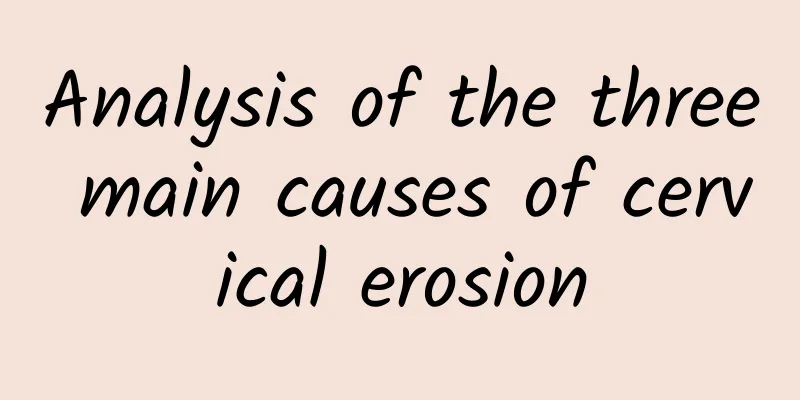What are the causes of postmenopausal endometrial thickening?

|
What are the causes of postmenopausal endometrial thickening? The incidence of postmenopausal endometrial thickening is also very high, and women also need to pay attention to it. So, what are the causes of postmenopausal endometrial thickening? Let's listen to the experts' introduction. Endometrial hyperplasia clinically manifests as functional uterine bleeding, with the main symptoms being irregular menstruation, prolonged menstruation and excessive menstrual flow. Most patients develop the disease during menopause or adolescence. Its occurrence is related to excessive ovarian estrogen secretion and progesterone deficiency. Postmenopausal endometrial thickening is caused by a large amount of estrogen stimulating the endometrium. Pathological endometrial hyperplasia after menopause, if it is atypical hyperplasia, has a high rate of canceration and a high possibility of endometrial cancer. In addition, ovarian tumors with endocrine function can also lead to endometrial hyperplasia. The longer the time of menopause, the greater the possibility of malignant changes in the endometrium, especially in the case of vaginal bleeding. This situation is relatively common. Women who enter menopause often have menstrual disorders, which is mainly due to the decline of ovarian function, failure to ovulate on time, and irregular ovulation cycles or anovulation cycles. Menstruation is irregular, sometimes more, sometimes less. Sometimes it is continuous from one month to the next; sometimes it is sudden and violent. Heavy bleeding is "dysfunctional uterine bleeding". Because the bleeding time is too long and the amount of bleeding is too much, it will seriously affect your health. You should go to the hospital for diagnosis and treatment in time. At the same time, inflammation and tumors of the female reproductive tract, such as cervical polyps, endometritis, uterine fibroids, cervical cancer, uterine body pain, ovarian tumors, etc., as well as some systemic diseases, such as blood diseases, hypertension, thyroid dysfunction, etc., can all cause irregular vaginal bleeding, which can easily be confused with menopausal menstrual disorders. Women with menopausal menstrual disorders should seek medical treatment as soon as possible to avoid affecting the early diagnosis and early treatment of certain diseases. |
<<: Normal causes of endometrial thickening
>>: The best hospital for menopause treatment
Recommend
Does cervicitis hurt?
Whether cervicitis will cause pain depends on the...
What is the best treatment for vulvar itching?
Vulvar itching can cause a lot of embarrassing mo...
What should you pay attention to after a miscarriage? Pay attention to these 8 points
According to relevant data, the number of abortio...
What medicine is good for pelvic peritonitis
Pelvic inflammatory disease is a gynecological di...
The occurrence of cervical erosion is related to many habits
Cervical erosion is a common gynecological diseas...
Longan replaces sugar, a bowl of glutinous rice balls saves 40 calories
Every winter solstice, people will inevitably eat...
Treatment of Dysfunctional Uterine Bleeding in Adolescence with Motherwort and Shepherd's Purse
Functional uterine bleeding is a common gynecolog...
How to determine the type of disease based on the symptoms of patients with vulvar leukoplakia
Vulvar leukoplakia is a disease caused by vulvar ...
3 dietary prescriptions for replenishing qi and blood after abortion
After an abortion, the patient's qi and blood...
Abnormal leucorrhea with a foul odor
Abnormal vaginal discharge with a foul odor may b...
Precautions during the treatment of acute adnexitis
The treatment of acute adnexitis must be timely a...
What causes cervical erosion?
Cervical erosion is a problem that many female fr...
What are the signs of uterine fibroids in the second pregnancy? Can the second pregnancy with uterine fibroids be delivered naturally?
What are the signs of uterine fibroids in the sec...
What are the symptoms of menopause and how to diagnose it
Women's fertility will gradually decrease aft...
What to eat after myomectomy What to eat after myomectomy
The recurrence rate of uterine fibroids is very h...









